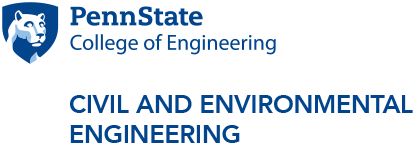The Hard Science of “Soft” Geomorphology: Flow-Vegetation-Organic Carbon Feedbacks in Rivers and Floodplains
Dr. Katherine Lininger, Ph.D., assistant professor, Department of Geography, University of Colorado Boulder
Abstract: In rivers and floodplains, there are complex feedbacks between hydrogeomorphic and ecological processes. Here, we discuss recent advances highlighting the influence of geomorphic processes on the spatial distribution of organic carbon storage, wood and organic matter dynamics, and flow-vegetation-fine sediment feedbacks. River corridors (channels and floodplains) are important components of the organic carbon cycle, acting as sites of carbon transport, transformation, and storage. Two large carbon stocks in river corridors include floodplain sediment and wood. In this talk, I present studies highlighting the geomorphic controls on the spatial distribution of organic carbon storage in floodplain soil and wood, drawing from work in boreal regions and the Colorado Front Range, USA. Channel migration, floodplain vegetation succession, grain size sorting, and flooding events exert controls on carbon storage in floodplains, and local reach-scale processes create substantial variability. In addition, human activities likely reduce floodplain carbon storage. I end with a discussion of future work aiming to address important knowledge gaps in ecogeomorphic processes influencing wood and organic carbon in river corridors.
Biography: Dr. Katherine Lininger is an assistant professor in the Department of Geography at the University of Colorado Boulder. As a fluvial geomorphologist, her research is focused on river and floodplain dynamics and the interactions between geomorphic processes and ecological processes. She is particularly interested in the influence of geomorphic processes on the flux and storage of organic carbon in floodplain soil and large wood, and on the interactions between downed large wood, vegetation, and geomorphic processes. Dr. Lininger completed her doctorate degree in Earth Science at Colorado State University, her masters in Geography at the University of Texas at Austin, and her undergraduate degree at the University of Wisconsin-Madison in Geography and Political Science. In addition to her academic career, she has experience working for the Union of Concerned Scientists, a science-based advocacy group.
Dr. Laurel G. Larsen, Ph.D., associate professor, Depts. of Geography and Civil & Environmental Engineering, UC Berkeley
Abstract: In low-gradient (1-50 cm/km) fluvial landscapes, the influence of vegetation on sediment is large enough to compete with the influence of flow on sediment, producing geomorphic processes and features that are not common in "traditional" fluvial geomorphology, are paradoxical from a traditional geomorphology perspective (e.g., high sinuosities, parallel drainage), and have generally remained poorly understood. However, recent advances in studies of fine sediment dynamics (including organic sediment) and flow and sediment transport through vegetated patches have made it possible to develop conceptual models of processes dominant in low-gradient fluvial landscapes. Based on a synthesis of studies performed on inland and tidal marshes, chalk and Coastal Plain streams, large river floodplains, and deltas, there is broad consistency in the feedback processes governing the coevolution of landscapes and vegetation, though geomorphic end points may be very different. Generally, flow-vegetation-fine sediment feedbacks play a dominant role in landscape morphology when the setting is depositional and little initial topographic differentiation is present. Feedback processes interact across a cascade of scales and can result in rapid geomorphic change at large scales when processes occurring at smaller scales are perturbed. In this talk I will hit the highlights of this synthesis of flow-vegetation-fine sediment feedbacks in low-gradient fluvial landscapes.
Biography: Dr. Laurel Larsen is an associate professor at UC Berkeley with appointments in the Departments of Geography and Civil and Environmental Engineering. For 2020-2023, she is on leave to serve as the Delta Lead Scientist, a USGS position housed within the Delta Stewardship Council in Sacramento. Dr. Larsen runs the Environmental Systems Dynamics Laboratory at Berkeley, which has a focus on understanding the interactions and feedbacks among the physical, biological, and social variables constituting ecosystems, and to apply that understanding to restoration and management challenges. Dr. Larsen has a bachelor's degree from Washington University in St. Louis, with dual majors in Systems Science and Mathematics and Environmental Studies, a master's degree from Washington University in Earth and Planetary Sciences, and a PhD from the University of Colorado Boulder in Civil and Environmental Engineering. She has worked in the Everglades, Chesapeake Bay, coastal Louisiana, and most recently, the Sacramento—San Joaquin Delta.
Additional Information:
Event Contact: Li Li



